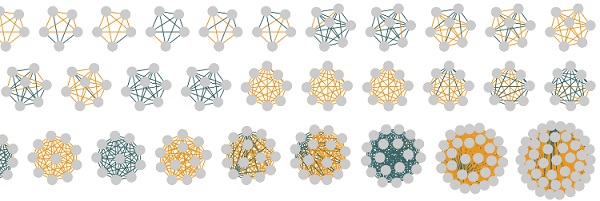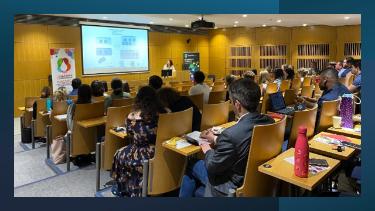Uncovering How the Machinery of Life is Rewired in Breast Cancer

Most of the work inside our cells is performed by protein complexes.These tiny molecular machines perform specific jobs such as ensuring our DNA is replicated accurately, manufacturing more proteins, and passing messages within our cells. In our latest study we examined how the activity of these protein complexes is altered in breast cancer and in particular how the mutations that occur in breast cancers might influence how these molecular machines function.
Over the last number of years, enormous collaborative research projects such as The Cancer Genome Atlas have assembled molecular profiles for thousands of human tumours. For each tumour, these profiles describe which genes are mutated, which proteins appear more or less abundant, and many other features. By performing a computational analysis of this large-scale data we assembled a ‘parts list’ for 285 protein complexes that appear active in breast cancers, describing which protein belongs to which machine.

We found that the mutation of a single component of a protein complex often caused the loss of the entire protein complex. This can be thought of as analogous to a game of Jenga – just as removing a single block from a Jenga tower can cause the entire tower to collapse, mutating a single gene can cause the collapse of an entire protein complex, thus rewiring the cell to potentially calamitous effect.
A major goal of precision medicine in cancer is to identify treatments that will be effective in patients with specific mutations, so rather than treating patients based on the organ their cancer occurs in we will treat them based on the mutations present in their tumours. In breast cancer, there are already a number of treatments that are targeted to tumours with specific genetic alterations, such as in the HER2 gene or the BRCA1 or BRCA2 genes. However there are many additional genetic alterations that occur in breast cancer, and in other cancers, that we cannot currently target therapeutically.
In order to develop more of these targeted treatments we need to develop a better understanding of how genetic mutations alter tumour cells - it is not enough to know that a gene is mutated, we need to understand what that mutation does to tumour cells. Our work provides such insight, in particular demonstrating that the mutation of one gene can result in the loss of an entire protein complex.
Research team
This study was led by Colm J. Ryan, an assistant professor in the School of Computer Science in University College Dublin, in collaboration with researchers at Systems Biology Ireland (University College Dublin) and at The Institute of Cancer Research in London.
You can read the paper here: http://www.cell.com/cell-systems/fulltext/S2405-4712(17)30399-X
If you’re struggling to imagine what a protein complex looks like, click here to watch a beautiful video describing a specific protein complex, called the proteasome, and how it can be targeted in another cancer type (myeloma).
About the Author

Colm Ryan is an assistant professor in the School of Computer Science in University College Dublin and leads the Targeting gene loss in cancer research group in Systems Biology Ireland. His research aims to improve our understanding of synthetic lethality treatments in cancer therapeutics.

